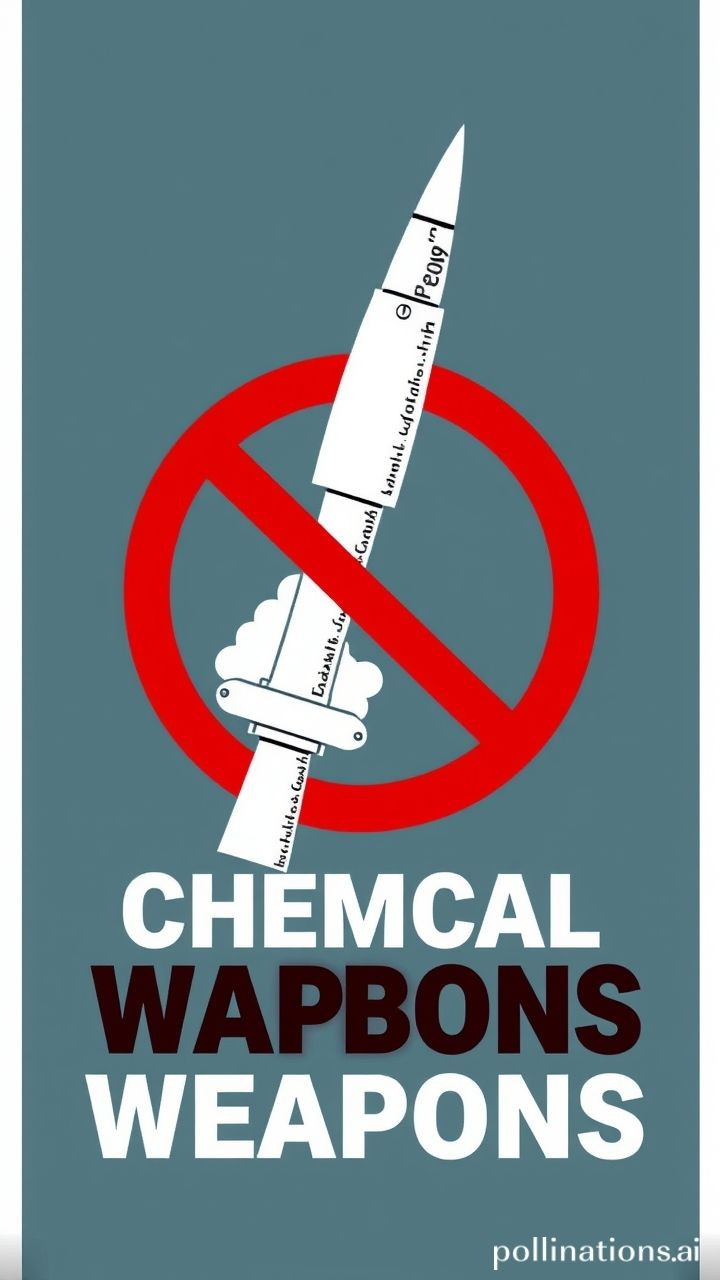
New law prohibits chemical weapons
New law prohibits chemical weapons

Title New Law Prohibits Chemical Weapons A Significant Step Towards a Safer Future
The Philippines has taken a significant step towards ensuring the safety and security of its citizens by prohibiting the development, production, stockpiling, and use of chemical weapons. President Ferdinand Marcos Jr. has signed into law Republic Act (RA) 12174, or the Chemical Weapons Prohibition Act, which aligns with the country's obligations under the Convention on the Prohibition of the Development, Stockpiling, and Use of Chemical Weapons, and on their Destruction.
What is the Chemical Weapons Prohibition Act?
This new law defines chemical weapons as toxic chemicals and their precursors, except when intended for purposes not prohibited under the Chemical Weapons Convention. The Anti-Terrorism Council (ATC) has been designated as the national authority responsible for implementing the law and coordinating with the Organization for the Prohibition of Chemical Weapons (OPCW).
Key Provisions
The Chemical Weapons Prohibition Act includes several key provisions
1. Prohibition of Chemical Weapons The law prohibits the development, production, acquisition, stockpiling, retention, use or transfer of any chemical weapon.
2. Possession or Transfer of Precursors and Chemicals The possession or transfer of precursors and chemicals without a necessary license or permit is prohibited.
3. Military Use The military is banned from using chemical weapons, and the use of riot control agents as a method of warfare is also prohibited.
4. Destruction or Disposal Chemical weapons found in the country will be destroyed or disposed of by the Armed Forces of the Philippines (AFP).
5. Penalties The law carries significant penalties for violators, including life imprisonment without parole and fines ranging from P2 million to P5 million.
Implementation
The Anti-Terrorism Council (ATC) is responsible for implementing the law and coordinating with the OPCW. The ATC will develop rules and regulations under RA 12174, appoint local inspectors, identify laboratories for off-site analysis, and regulate activities involving scheduled chemicals.
Transparency
To ensure transparency, the Philippines must submit annual declarations to the OPCW about activities involving toxic chemicals and relevant facilities.
Conclusion
The Chemical Weapons Prohibition Act is a significant step towards ensuring the safety of the Filipino people. The law's provisions will help prevent the misuse of chemical weapons and promote international cooperation in preventing the proliferation of these weapons. By prohibiting the development, production, stockpiling, and use of chemical weapons, the Philippines has demonstrated its commitment to upholding the principles of disarmament and non-proliferation.
Keywords Chemical Weapons Prohibition Act, Republic Act 12174, President Ferdinand Marcos Jr., Anti-Terrorism Council (ATC), Organization for the Prohibition of Chemical Weapons (OPCW).
